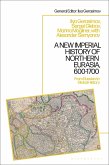This work poses a straightforward - yet at the same time perplexing - question about World War I: Why did it happen? Several of the oft-cited causes are reviewed and discussed. The argument of the alliance systems is inadequate, lacking relevance or compelling force. The arguments of mass demands, those focusing on nationalism, militarism and social Darwinism, it is argued, are insufficient, lacking indications of frequency, intensity, and process (how they influenced the various decisions). The work focuses on decision-making, on the choices made by small coteries, in Austria-Hungary, Germany, Russia, France, Britain and elsewhere. The decisions made later by leaders in Japan, the Ottoman Empire, Italy, the Balkans, and the United States are also explored. The final chapters review the 'basic causes' once again. An alternative position is advanced, one focused on elites and coteries, their backgrounds and training, and on their unique agendas.
Dieser Download kann aus rechtlichen Gründen nur mit Rechnungsadresse in A, B, BG, CY, CZ, D, DK, EW, E, FIN, F, GR, HR, H, IRL, I, LT, L, LR, M, NL, PL, P, R, S, SLO, SK ausgeliefert werden.









